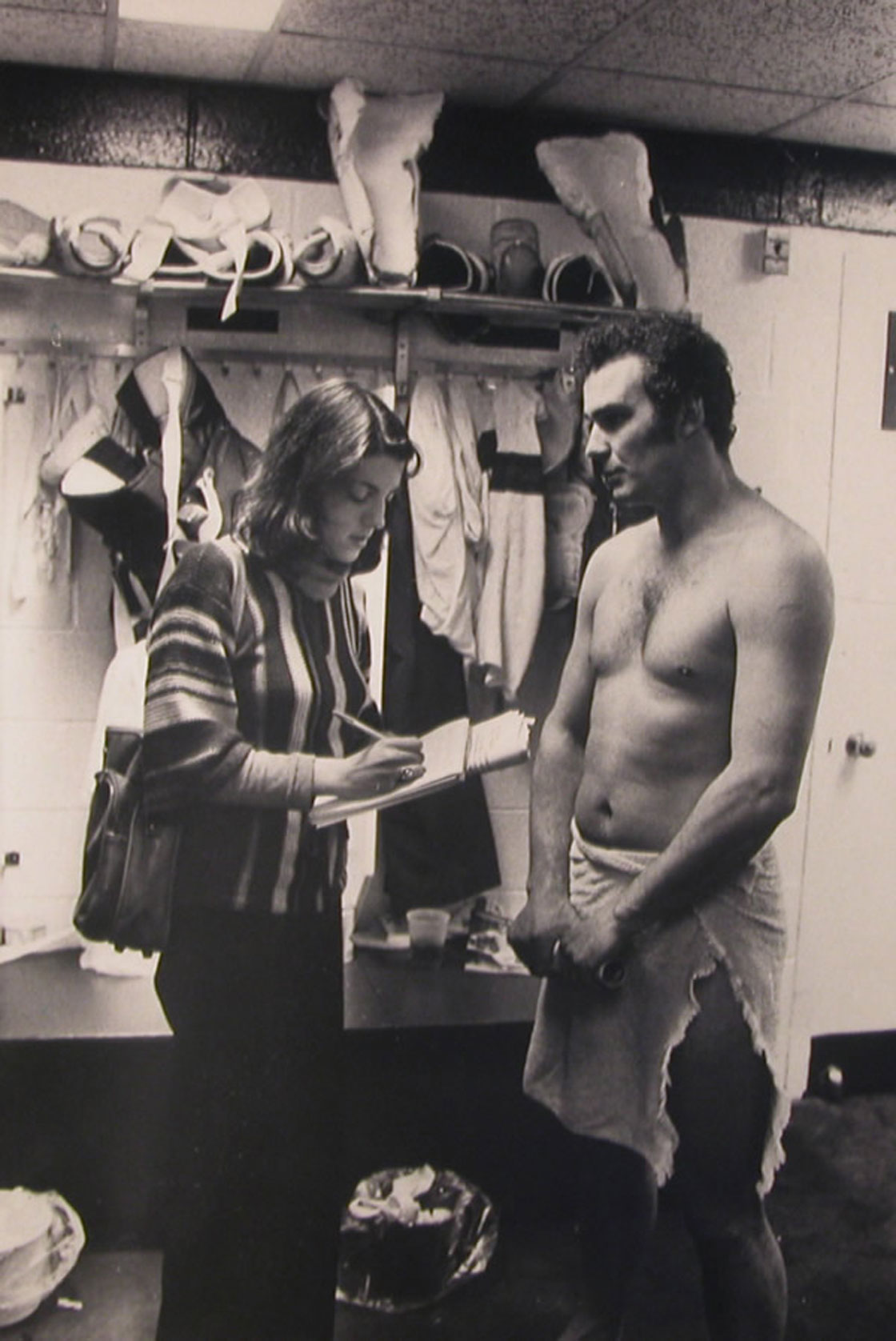Robin Herman, the first female hockey reporter for the New York Times in the early- to mid-1970s has a message for Don Cherry, who’s found himself in a bit of hot water again this week.

“Hey Don, don’t you remember?” Herman said by phone Monday. “You were a stand up guy.”
Herman was 23 and right out of college when she was assigned to report on the woeful New York Islanders. She remembers the former Boston Bruins coach fondly in those early days of her career.
“Don Cherry was the first coach of an NHL team to allow me into the locker room as a matter of policy,” she said. “He was my hero.”
The outspoken commentator and Canadian hockey icon created a minor controversy over the weekend when he suggested on air that women don’t belong in male locker rooms.
Back then, Herman had pleaded with various team officials and the league itself for the better part of a year to be let in.
“I was up against a Draconian news deadline. Working for the Times I had to have my stories in by 11 p.m. or die,” she said. “Every minute that I stood there waiting for someone to come out of the dressing room to talk to me was excruciating.”
Cherry was the first coach to allow Herman in on regular season games in the last half of the 1974-75 season, but the breakthrough moment actually came on Jan. 21, 1975 at the NHL All-Star Game in Montreal.
It was then Herman and another female reporter from one of Montreal’s local radio stations were let into the locker rooms following a 7-1 trouncing by the Wales Conference over the Campbell Conference squad.
In a scrum with the coaches of each team a day earlier, a reporter asked if Herman would be allowed in. With not much to lose, Bep Guidolin of the Kansas City Scouts and the Philadelphia Flyers’ Fred Shero gave the green light.
Herman is one member of a cohort of female journalists who in the mid-1970s broke down many of the barriers keeping women out of sports reporting.
Another is Melissa Ludtke, who went to court against Major League Baseball.
Ludtke, a female reporter for Sports Illustrated for much of the 1970s, called Cherry’s off-the-cuff remarks “preposterous.”
“The idea that they’re following these players into the shower? It’s ridiculous. The only place reporters are allowed is the locker room,” she said.
Ludtke filed suit and won against Major League Baseball in 1978, claiming that by excluding her from locker room scrums male reporters were permitted to attend was a violation of the 14th Amendment.
As a token of appreciation for her stubborn will to elbow her way into a world dominated by men, Ludtke’s lawyers gave her a bounded, navy blue book that compiled affidavits and other court documents collected during the course of the trial.
Embossed on the spine of the book, which now sits in a Harvard library, reads the title “Let Them Wear Towels.”
In the trial, the MLB’s lawyer argued for Ludtke’s exclusion on the grounds that it would change the natural routine of the players – even the nature of baseball itself, says Ludtke, who’s writing a book on the trial.
It was a slam-dunk decision, the veteran journalist says.
“Here we have the equal protection clause of the 14th Amendment of the United States versus ‘it would upset the players’,” she says.
Herman and Ludtke are being profiled in an ESPN documentary set for release in July.
“It’s a question of being allowed to do your job, an equality question,” said Herman, who moved onto to science writing at the Times in 1979 before taking up a job in academia.
“Male reporters are allowed in the dressing room. Frankly, I never understood why that was allowed. I would have thought players would want their privacy from any and all strangers, but since that was the tradition and the way work was done – and also expedient – that was the way it was.
“But keeping out women who were covering sports was plainly inequitable,” she said.


Comments